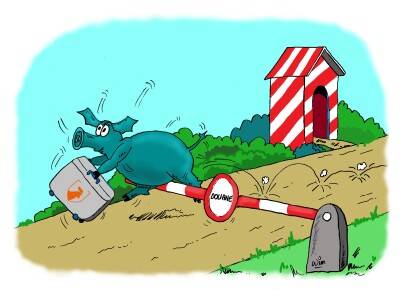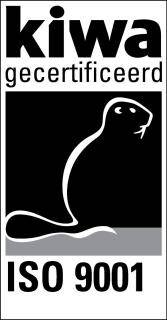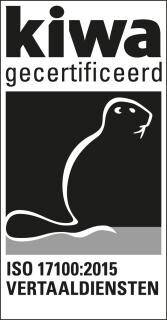
Taking your brand or product name to the international market? Tread carefully!
You've developed a brand or product, have decided on a catchy name and want to introduce it to an international audience. It’s only natural that you’ll want to double check the name, to make sure it doesn’t have a double meaning or negative connotations. That’s why you opt for a specialist agency, that immediately checks to see whether the brand or product name is already in use in the local market. It sounds obvious, but these steps are so often forgotten, even by the most renowned organisations. In this chapter, we’ll look at a few hilarious examples of companies getting it completely wrong when it comes to naming brands and products. Then we’ll explain how to avoid making these type of mistakes.
To ensure consistency and brand recognition, you'll naturally prefer to use the same name across the globe. Yet this is sometimes impossible, as the name might have negative or even offensive connotations in some territories. To avoid marketing mistakes, it’s very important to critically examine all of your brand and product names. Not only should you take into account the meaning of the words, but also social influences such as spelling and pronunciation. In addition, avoid using numbers, colours and symbols as much as possible, because in some countries, this is simply ‘not done'. These can be linked to superstitions or traditions for example.
Often the literal meaning of your brand or product name can leave you red faced. Believe it or not, some renowned companies have introduced names that mean ‘street whore', ‘ugly bitch', ‘little prick’ and ‘fucker’ elsewhere. Hilarity will no doubt ensue among the local audience, but it goes without saying that this is detrimental to your company’s reputation.
A car manufacturer selling ‘jalopies'
In the past, Ford left itself vulnerable to criticism with rather confrontational choices of brand names. In the 1960s for example, there was the Ford Comet. Seemingly nothing wrong with the name, but this changed when Ford introduced the model to the Mexican market under the name Ford Caliente. Caliente is Spanish for ‘hot', and in Mexican parlance this means nothing less than ‘street whore'. In this instance, Ford would have been wiser not to translate the brand name.
The second error of judgement arose in the same decade, when Ford introduced the Cortina. In Spanish, Cortina means ‘curtain', but the term is more commonly used to mean ‘jalopies'. And what about the Ford Fiera? The literal meaning is ‘wild beast', but in Spanish it also has an informal meaning of ‘ugly bitch'. When you consider that Spanish is spoken by more than 300 million people worldwide, you realise that the car manufacture would have been better off using a different name. And this wasn’t the last mistake Ford made. They introduced the Ford Pinto in 1970. You might think that the name is rather catchy, but 170 million native Portuguese speakers thought otherwise. The vulgar meaning of Pinto is ‘little prick'.
Paying with your body part
You might not expect it from our eastern neighbours, but they are unintentionally good at this too. We probably don’t need to explain why, but German coach company Fücker has been a cause of hilarity among drivers since 1962. For embarrassing company names, we don’t even have to look abroad. What about all the Rabobank customers who want to pay with male genitalia in Spain? Rabo means ‘cock’ in Spanish slang. And the translation into Esperanto is also disadvantageous to a financial institution, as ‘rabo' means ‘robbery’ in this artificial language. The name of the Dutch home care organisation Pro Geria is a rather unfortunate choice, as it’s phonetically identical to the debilitating, progressive genetic disorder progeria.
IKEA’s web of product names
Companies don’t always realise that the mere pronunciation of a product or brand name can lead to painful translation misunderstandings. IKEA always has its product names checked by a permanent team of interpreters and translators and, if necessary, has them transliterated. A good thing too, as IKEA once discovered that that name of a bed, Redalen, was a little too similar to the Thai word for oral sex. Similarly, Jättekul, the name of a plant pot in their product range, would have sexual connotations in Thailand.
The benefits of a professional translation agency
These mistakes all show that you should leave nothing to chance when introducing brand and product names internationally. In some cases, you should even think twice about your own company name. Working together with a professional translation agency like AgroLingua can avoid painful mistakes which could otherwise lead to serious damage to your international reputation. Our native speakers can judge whether your product names have any strange connotations, and understand the cultural norms and values of their native countries like no other. They are also aware of the latest developments in language and language variants. That’s why they can tell you when a brand or product name is too similar to a word you’d rather not be associated with.
We are knowledgeable and experienced in translating web content and marketing texts. And our translators keep an eye on this too. They ensure that texts and product names don’t evoke any negative connotations in the language in question.
Want to know more about whether or not you should translate your brand or product name? Then get in touch with the translation-localisation specialists at AgroLingua!





.png)

